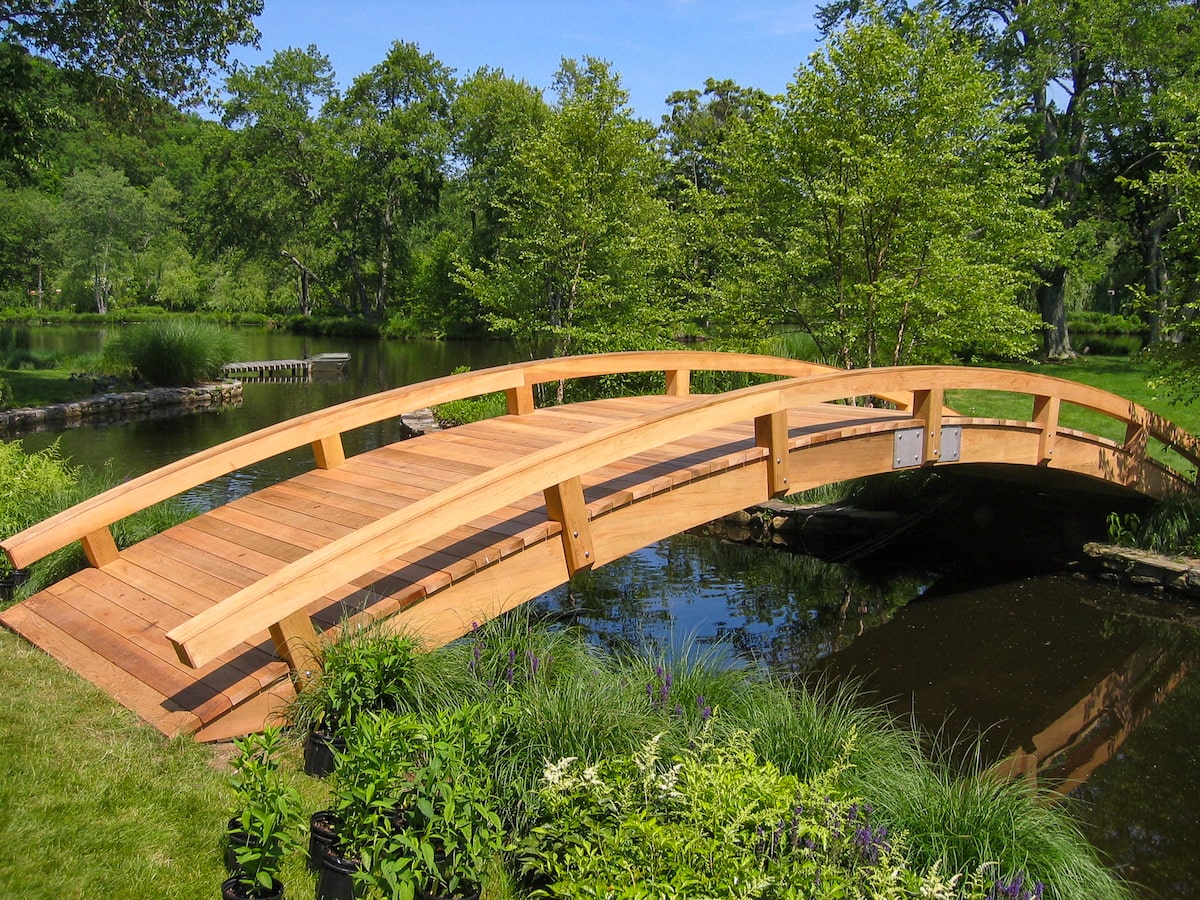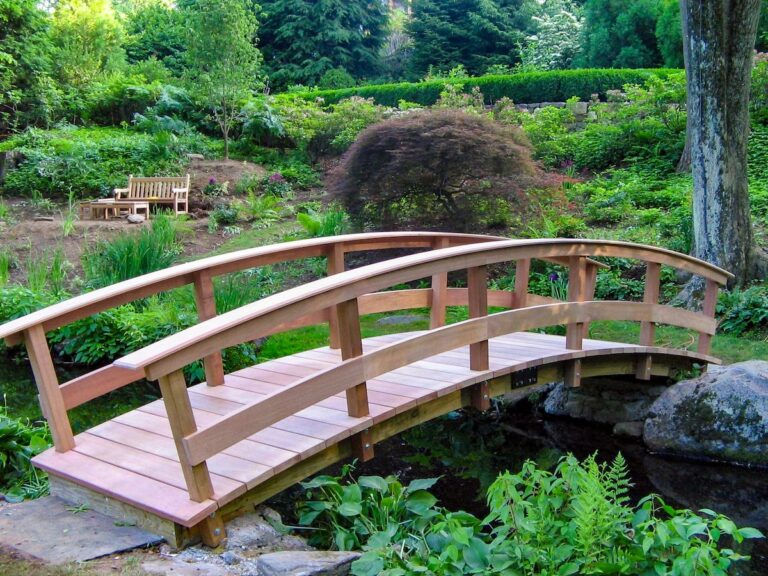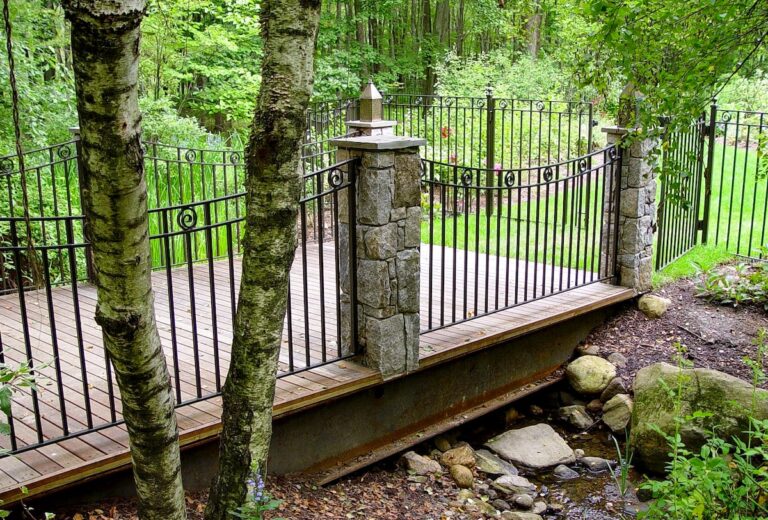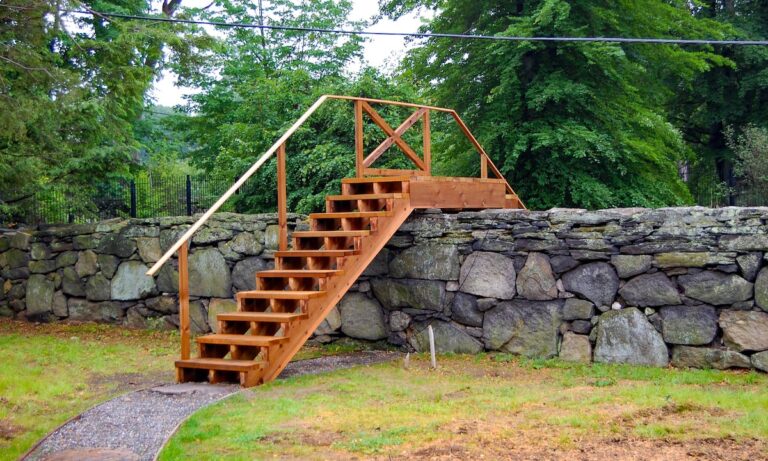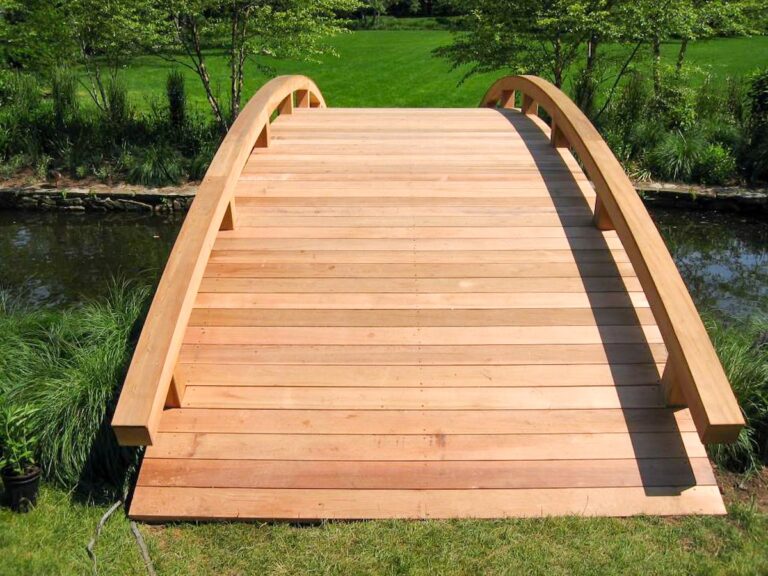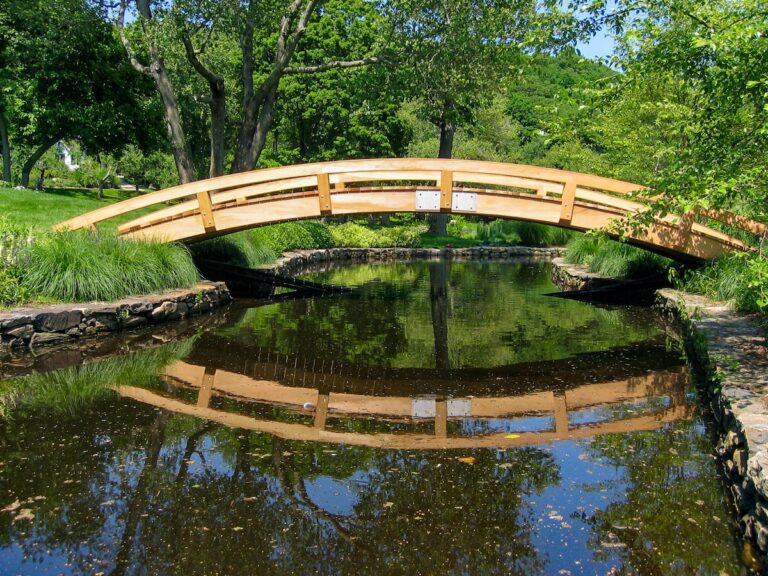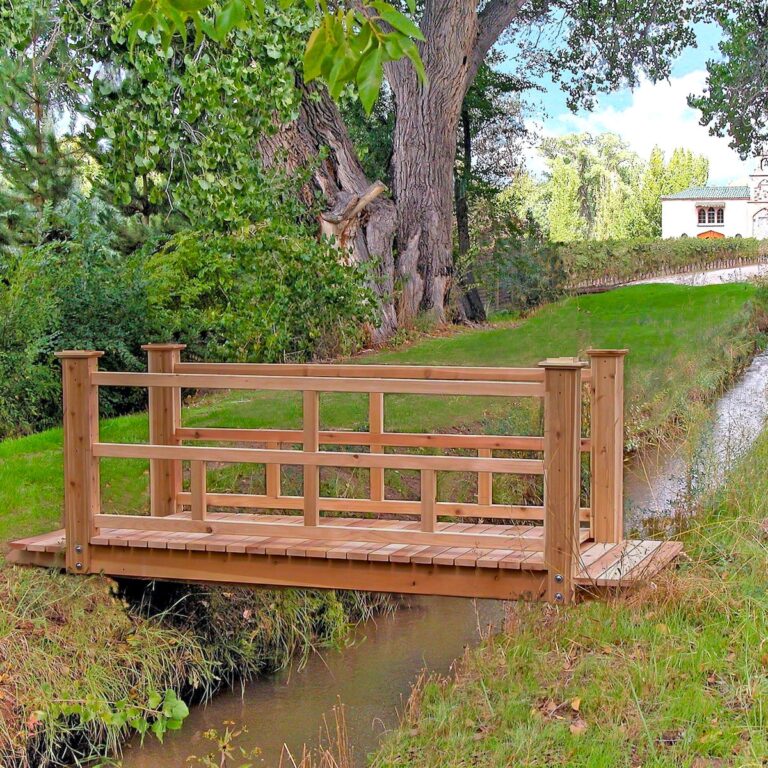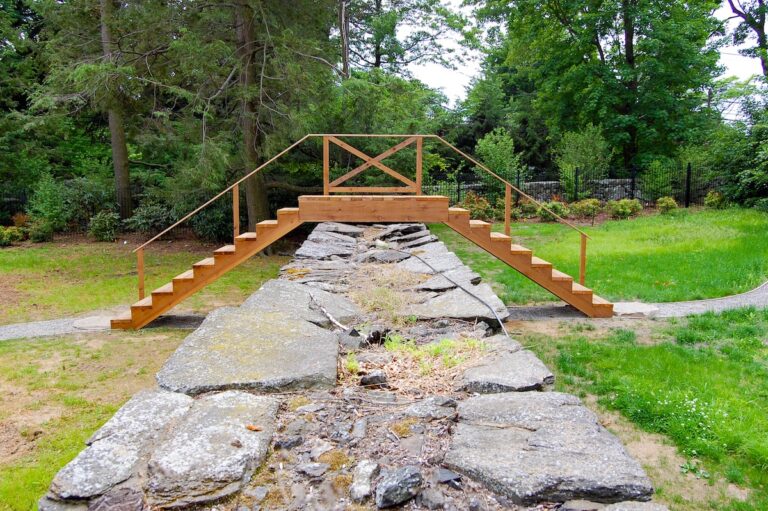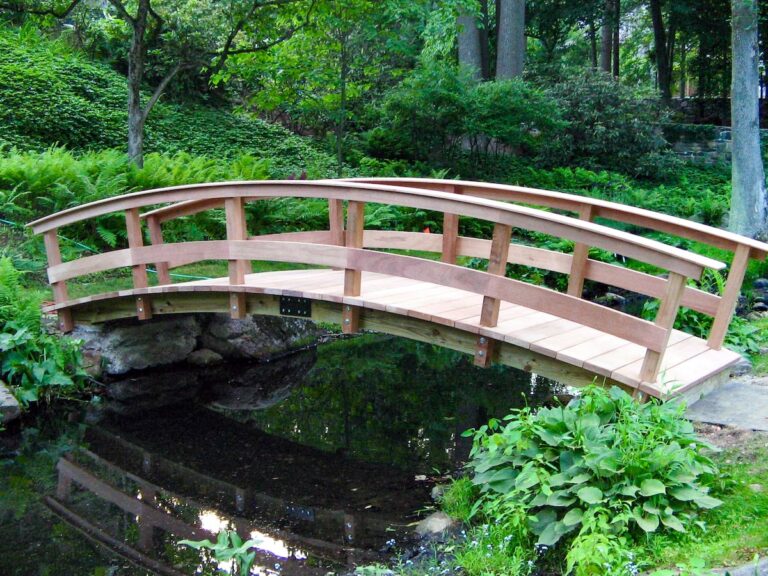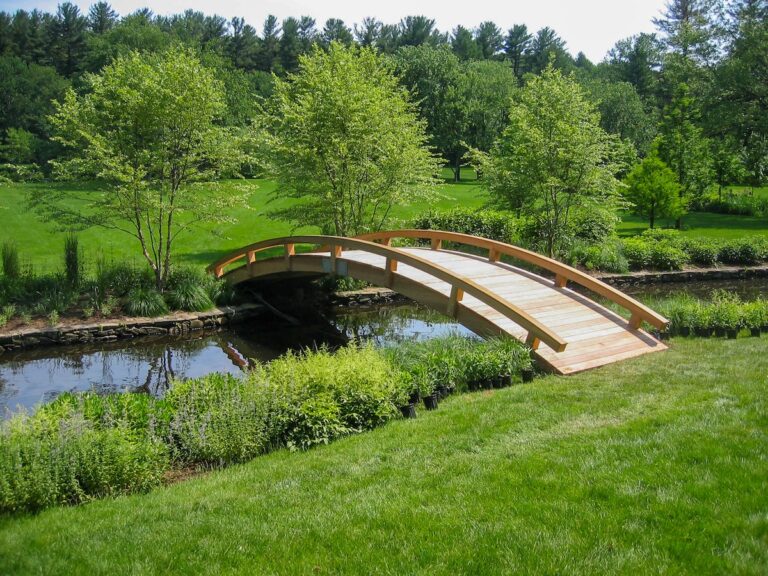You are using an outdated browser. Please upgrade your browser to improve your experience.
Custom-Designed Bridges
From iconic city bridges to the humblest little walkway across a stream in the woods, there’s something intrinsically fascinating about bridges. Landmarks in the landscape, they offer a place to pause and admire your surroundings. Each one is a little testament to human ingenuity, holding you aloft as you cross from one place to another.
At Garon Fence, our custom made garden bridges provide durable, long-lasting, aesthetically pleasing solutions for crossing waterways or other obstacles on your property. Constructed from the finest materials, our bridges stand up to the toughest conditions and provide safe and reliable passage for years to come.
Whether you need a bridge for a residential property, recreational area, or a commercial development, our custom fabrication process brings skilled craftsmanship and unique, personalized design to your landscape or infrastructure project.
Different Types of Garden Bridges
Arched Garden Bridges
A classic choice for traditional Asian and European gardens, arched bridges present a gently curved path over ponds, streams, and gravel riverbeds. The design adds an element of grace, making the structure feel lighter and more visually striking.
Flat Garden Bridges
Flat bridges provide an even, level surface, ideal for creating a seamless transition over water or other pathways. They’re often chosen for gardens with geometric layouts, and they work especially well in modern and contemporary garden settings.
Step Bridges
Sporting small steps instead of a smooth walkway, step bridges are perfect for sloped areas or gardens with uneven terrain. Designed for more intimate pathways, they’re often narrower than other bridges, and they heighten the sense of movement and progression through the space.
Rustic Log Bridges
More a style than a type, bridges made from unprocessed logs or timber can lend a bucolic look to your property. They’re perfect for informal garden designs or forested settings where the goal is to enhance the feeling of being immersed in nature.
Japanese-Style Garden Bridges
Again, more a style than a type, Japanese garden bridges are known for their simplicity and elegance. Emphasizing clean lines and subtle arches, they’re sometimes painted in vivid colors like red or black, and they’re typically positioned over water features like koi ponds.
Garden Bridge Materials
Mahogany
A highly durable hardwood that resists warping, shrinking, and swelling, mahogany is ideal for outdoor use in areas exposed to moisture. Its rich, deep reddish-brown color adds a luxurious look to your property
Western Red Cedar
Western red cedar is naturally resistant to moisture, decay, and insect damage due to its high concentration of natural oils and tannins, making it one of the best softwoods for outdoor construction. It’s highly receptive to stains and finishes, making it versatile for different design preferences.
Brazilian Ipe
Nicknamed “ironwood,” Brazilian ipe is one of the densest and hardest woods available: so much so that it has a Class A fire rating, similar to steel or concrete. Highly resistant to scratching, denting, and general wear, ipe is perfect for high-traffic outdoor construction, and it’s remarkably resistant to rot and decay.
Mixed Materials
While many of our bridges are made from wood, we also work in mixed materials such as stone, metal, and custom composite at your request. Check out our photo gallery below to see a bridge we built that incorporates a wooden platform, stone columns, and a wrought iron railing.
FAQs about Garden Bridges
How Do I Choose the Right Size Garden Bridge for my Space?
To choose the right size for your garden bridge, start by measuring the gap that you want to span: the bridge will need to be at least that length plus at minimum an extra foot or so on both sides, often a little more than that. The width of the bridge should also match the scale of your garden. A smaller garden may only require a narrow bridge, typically around 2 to 3 feet wide, which works well in tight spaces or for simple pathways. Larger gardens or spaces where the bridge will be a central feature may benefit from a wider bridge, between 4 to 6 feet, allowing for two people to cross side by side easily. These bridges are also wide and strong enough to support a golf cart, making them ideal for expansive properties.
Where Is the Best Place to Put a Garden Bridge in My Garden?
The best place to put a bridge in your garden depends on both aesthetic and functional considerations. Often the bridge is a focal point, guiding attention to key features of the landscape, such as ponds, streams, flower beds, or pathways. A bridge will naturally steer people’s movements through the space, so think about how you use your garden and where you want to direct people’s attention. Placing a bridge in a secluded corner can create a peaceful retreat, encouraging visitors to explore different parts of the landscape.
How Much Does a Garden Bridge Cost?
The cost of a bridge varies widely depending on the materials requested, the size of the structure, the intricacy of the design, and the complexity of the installation process. Request a free on-site consultation, and a member of our team will meet with you to discuss the unique features of your garden. Our bridges are all custom made from the finest materials, and we take pride in bringing your vision to life.
Free On-Site Consultation in NY, NJ, and CT
Based out of Westchester County, NY, we serve the greater New York City and New England area, particularly Connecticut, New York, and New Jersey. Call 914-306-9056 or contact us online to visit our factory showroom in Bedford Hills or to arrange a free, on-site consultation.

